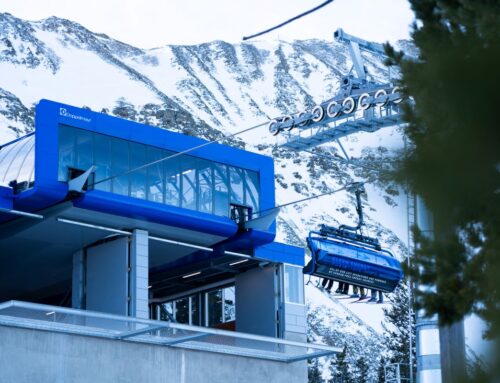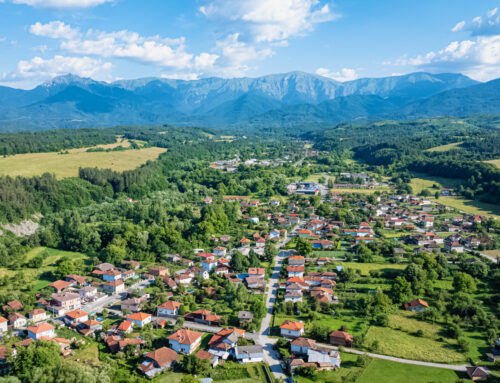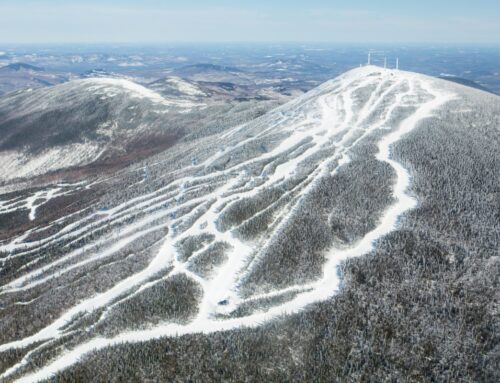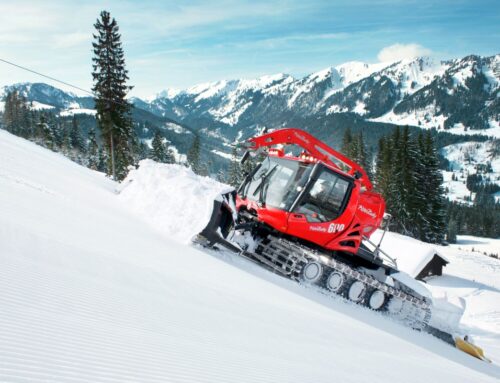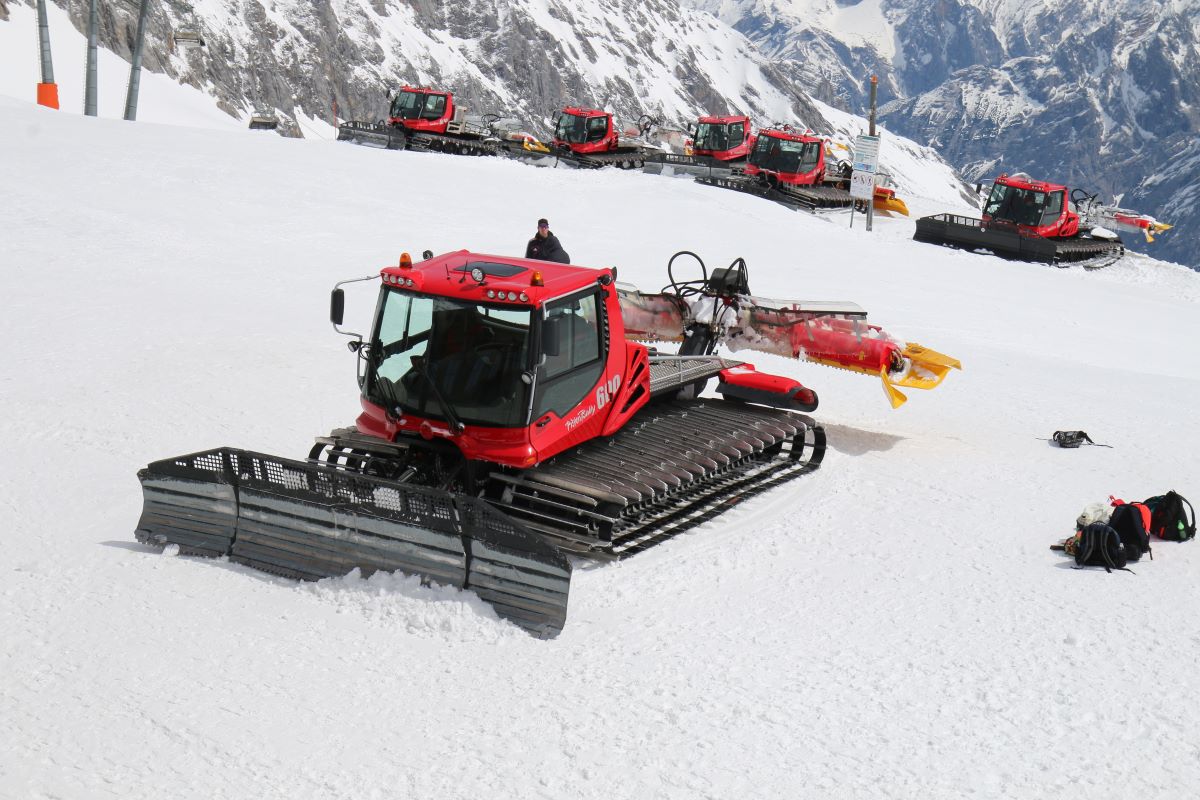
Maintenance & Service, Snowmaking & Slope Maintenance, Specials
Snow groomers: Which fuel makes sense?
“Power-to-X” is the title of a study that was presented at the General Assembly of the Swiss Graubünden Mountain Railways (BBGR).
The study examines the feasibility of in-house hydrogen production by GEVAG (Waste Incineration Plant Trimmis GR) for the production of methane for Energie Wasser Chur (IBC) and methanol for the snow groomers of the Grisons Mountain Railways.
The study was conducted by TBF + Partner AG, a specialist in waste disposal and energy based in Zurich, on behalf of GEVAG, IBC, the Association of Operators of Swiss Waste Disposal Plants (VBSA), and BBGR.
Mario Illien, a world-renowned engine builder – known for his work with Formula 1 and Indycar Series in the USA – advocated in his guest lecture for using HVO fuel for the snow groomers instead of methanol.
HVO is diesel made from hydrogenated vegetable oils. Methanol is an organic alcohol. Hydrogen is required to produce both products.
They discussed synthetic fuel:
The former president Martin Hug (right) and the new president Markus Moser (left) with engineer Mario Illien (middle).

Lack of economic viability and engine technology
The authors of the study for the pilot plant of GEVAG place the greatest question mark on the economic viability of the project. The electricity demand of the pioneer plant (for producing the necessary fuel amount for all piste machines in Graubünden) could only be covered 29 percent by GEVAG’s own electricity.
Even with subsidized investments and free summer electricity, no economic scenario would emerge. The produced methanol would be 3.6 to 6.8 times more expensive than conventional diesel.
Furthermore, significant developments in engine technology are still required for the use of methanol in commercial vehicle engines. This implies the use of methanol in the transport sector, such as for trucks.
Piste machines only a niche in engine development
According to Marcus Gschwend, managing director of BBGR, piste machines are a niche product that hardly influences engine development. He also pointed out that the Graubünden mountain railways have already committed to reducing CO2 emissions for their own benefit.
As examples, he mentioned the production of renewable energy, as well as the optimization of consumption in transport systems, snowmaking, and building operations. Furthermore, a large part of the Graubünden mountain railways uses electricity from hydropower.
They presented the study about methanol:
Study author Thomas Gäumann, project manager at TBF + Partner AG, Zurich (middle), Stefan Illien, managing director of Energie Wasser Chur (left), and Jürg Kappeler, chairman of the board of GEVAG (right).

Vision of a pilot plant
Switzerland aims to no longer emit greenhouse gases into the atmosphere by 2050, as much as can be captured by natural and technical storage (Net Zero goal). A 50 percent reduction is targeted by 2030.
For this reason, GEVAG must remove CO2 from the raw gas – either by transporting it to foreign storage sites or by substituting fossil energy sources.
According to Jürg Kappeler, chairman of the board of GEVAG, the company is pursuing the vision of a pilot plant that would achieve a price of 2.60 Swiss francs per liter for a diesel substitute. GEVAG is relying on inexpensive electricity from the nearby planned Chlus power plant by Repower, as well as funding contributions, for example, from the Green Deal Graubünden (AGD) action plan.
Is a breakthrough possible with methanol?
According to engineer Enrico Feurer, energy advisor to the Graubünden mountain railways, the implementation of the methanol project is currently not recommended from the perspective of the mountain railway companies due to the combination of immature technology and very high costs.
This could change if a technological breakthrough in methanol engines occurs or if electricity prices drop significantly. However, the signs currently point in a different direction.

